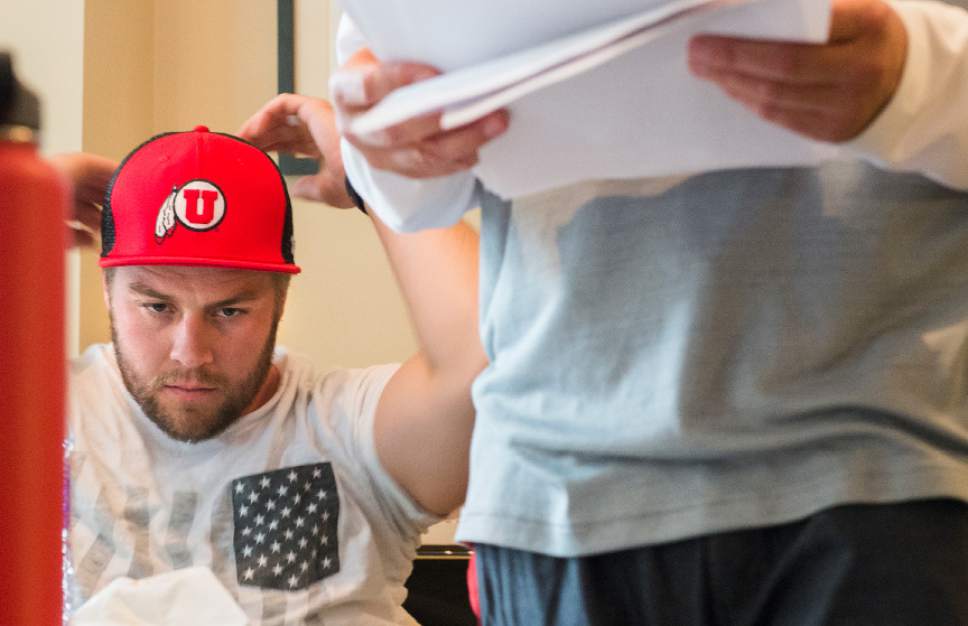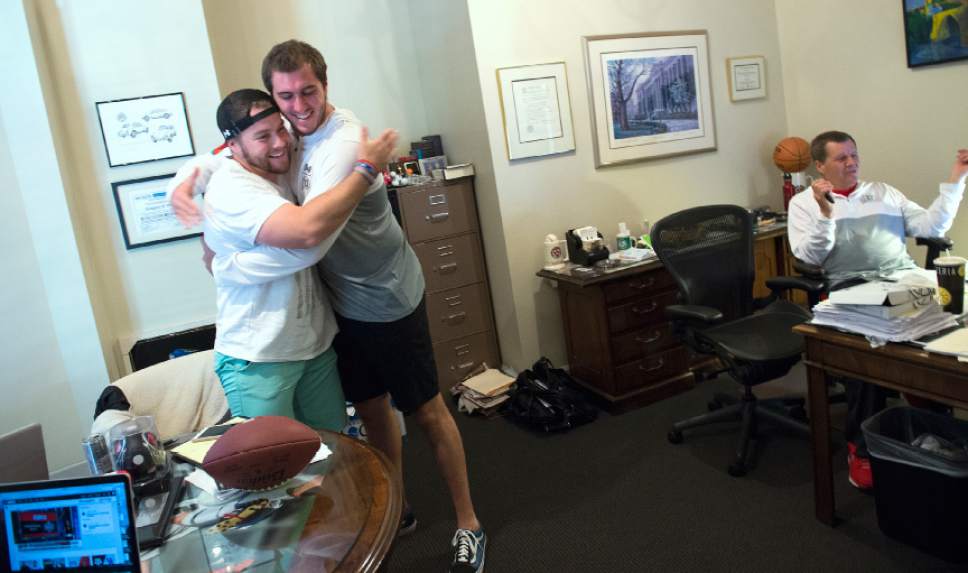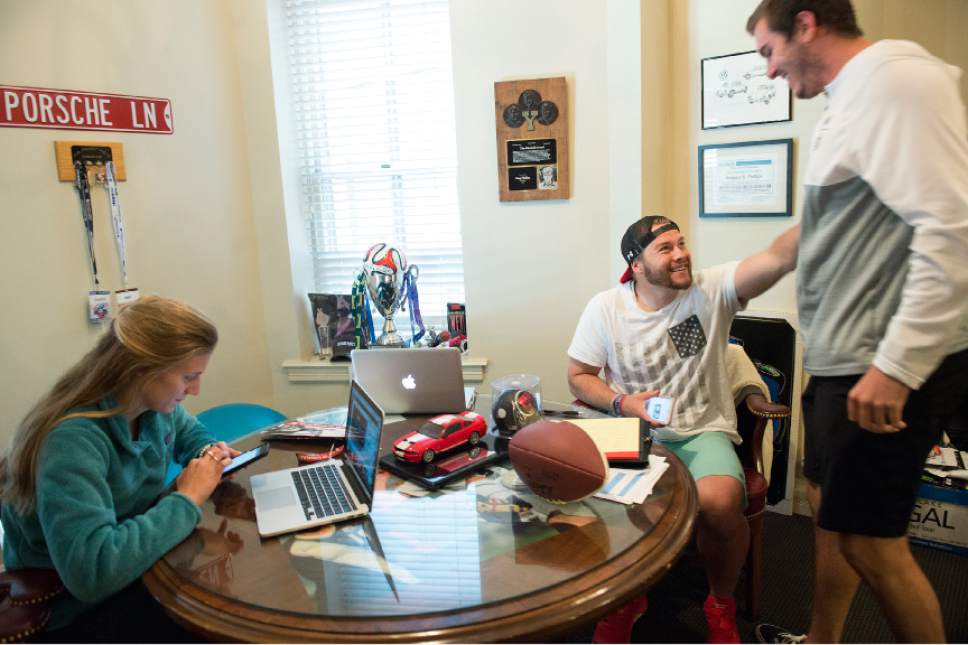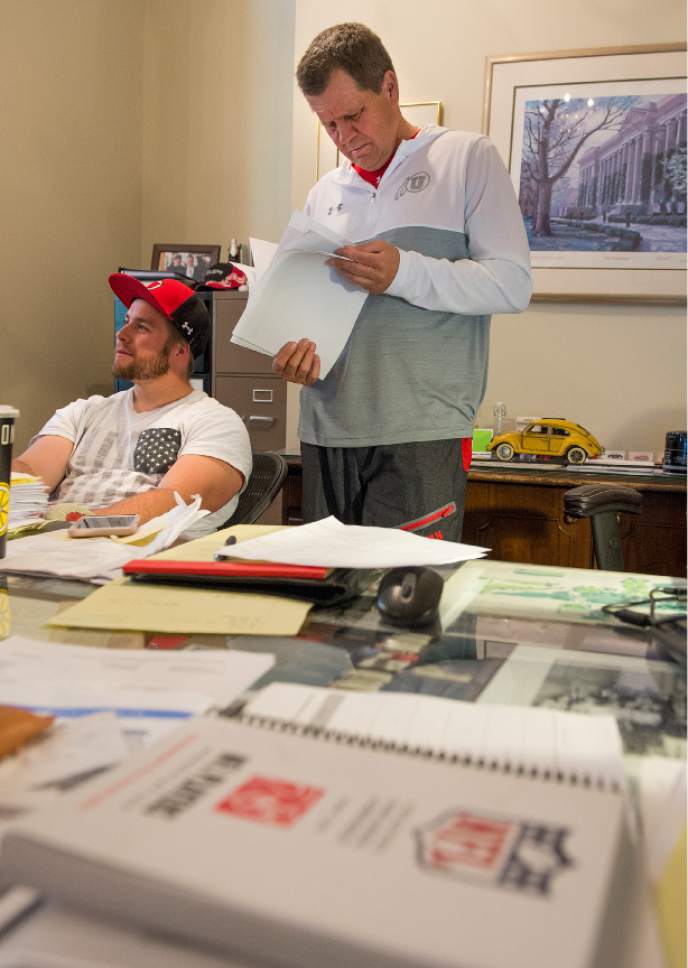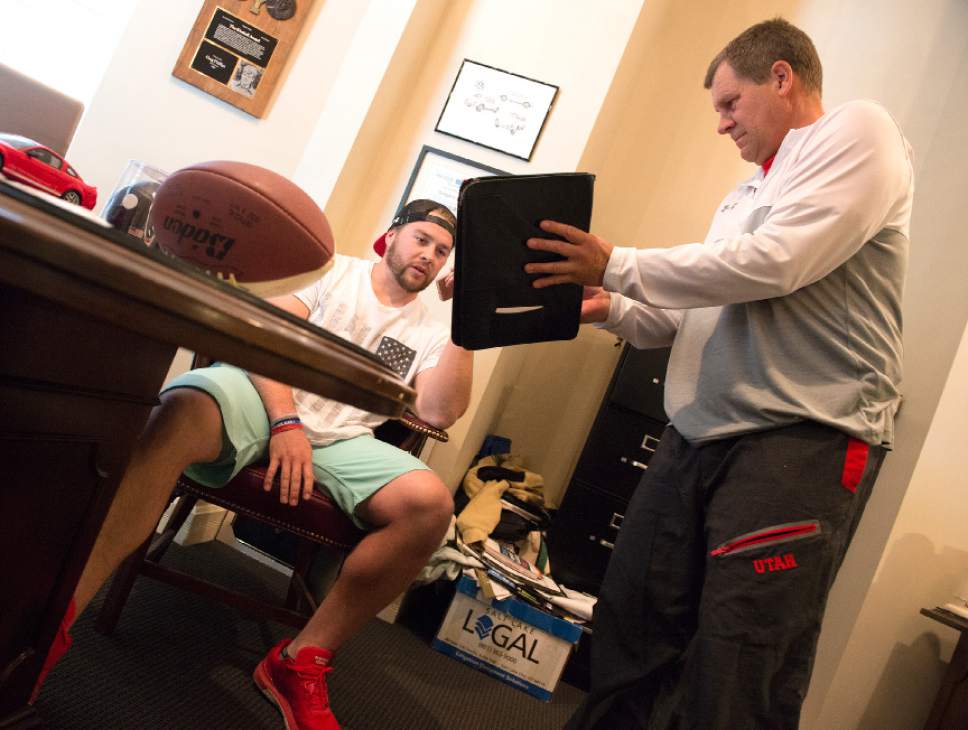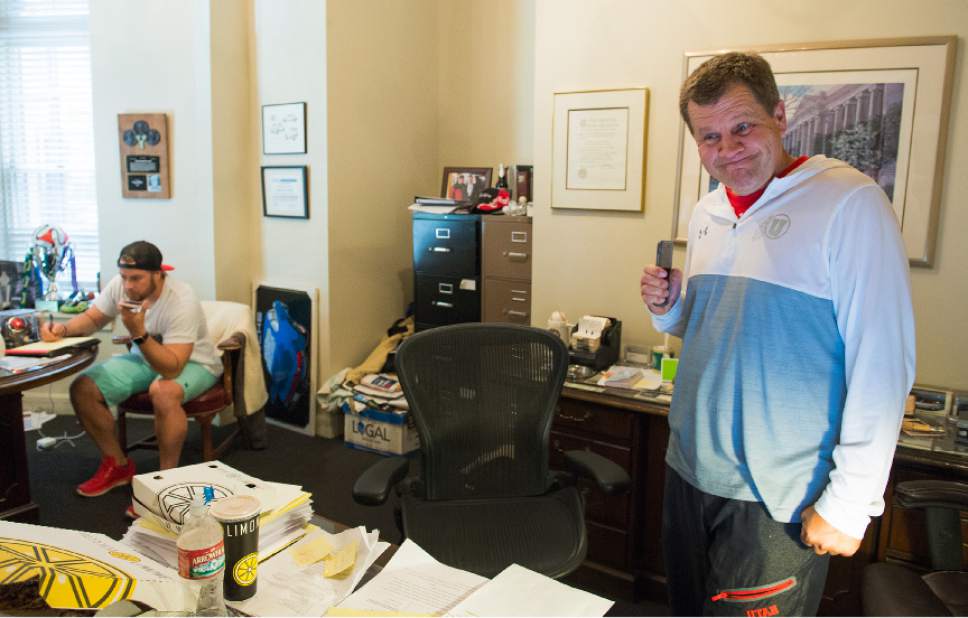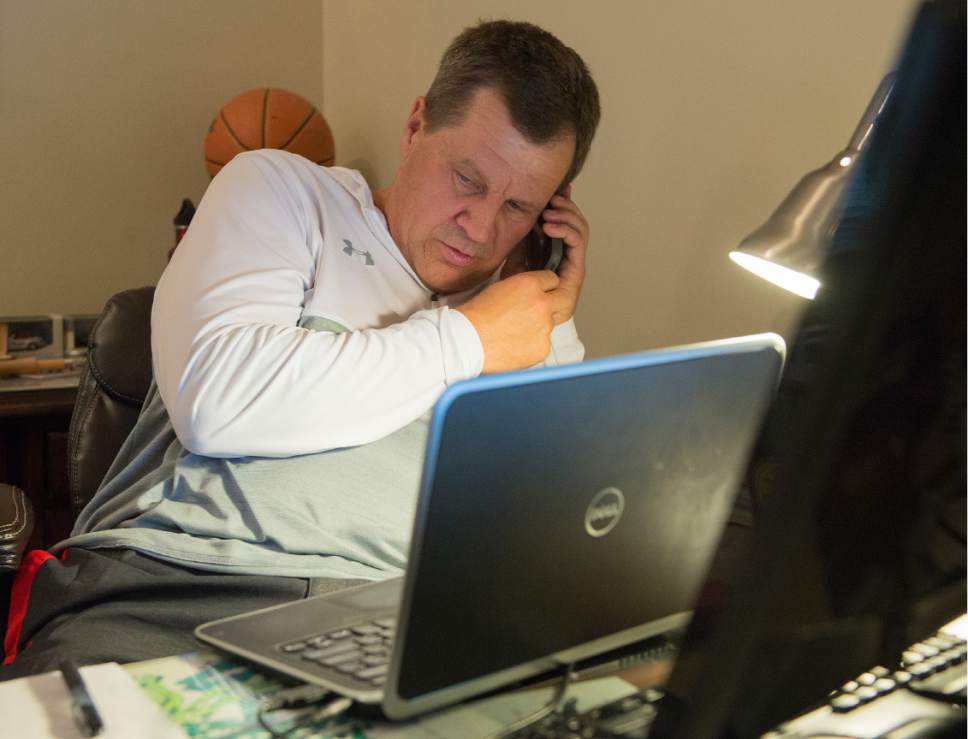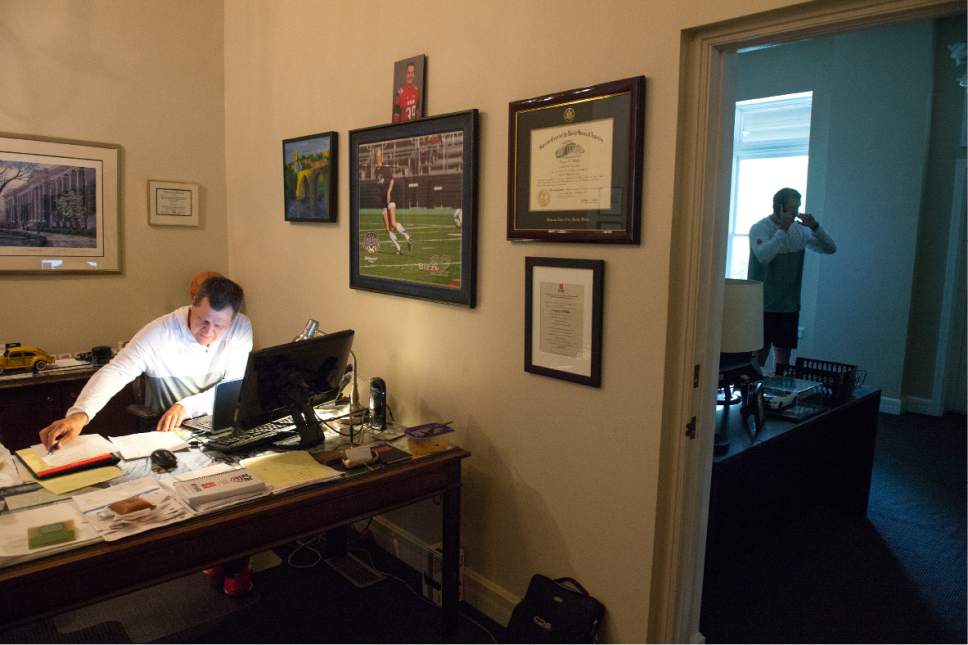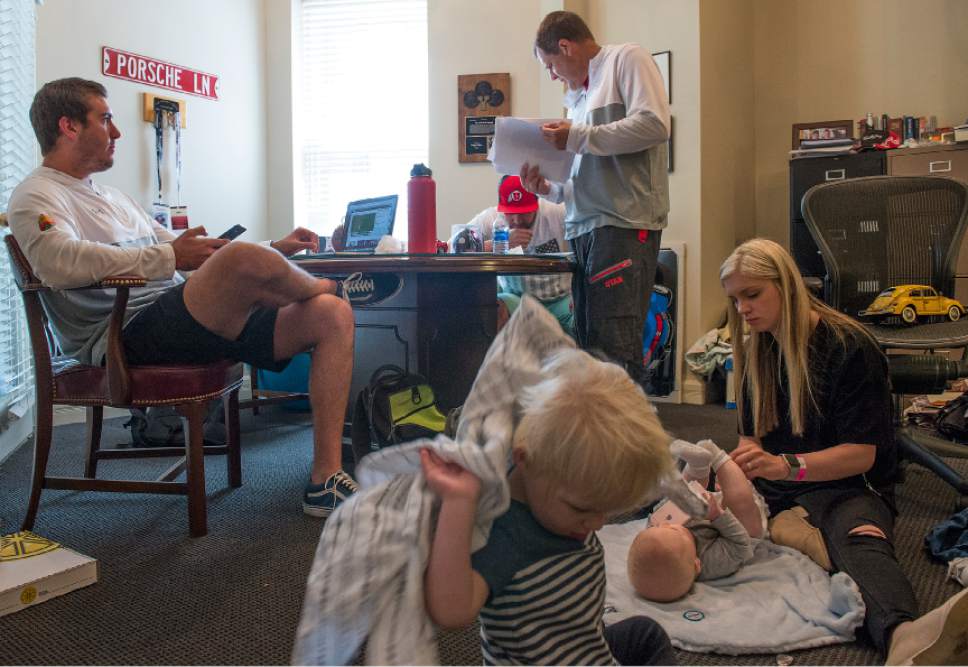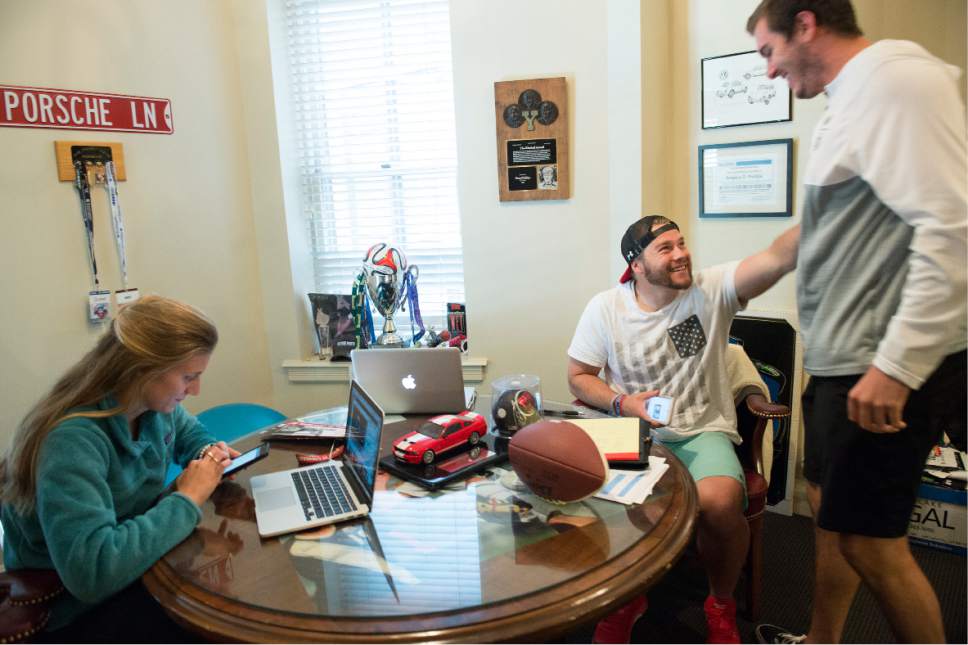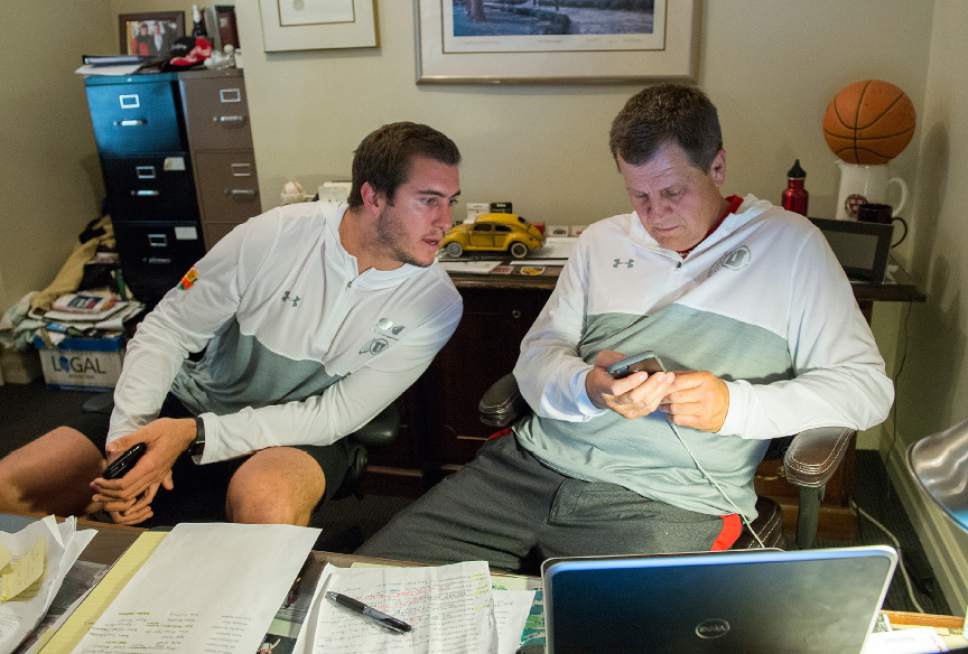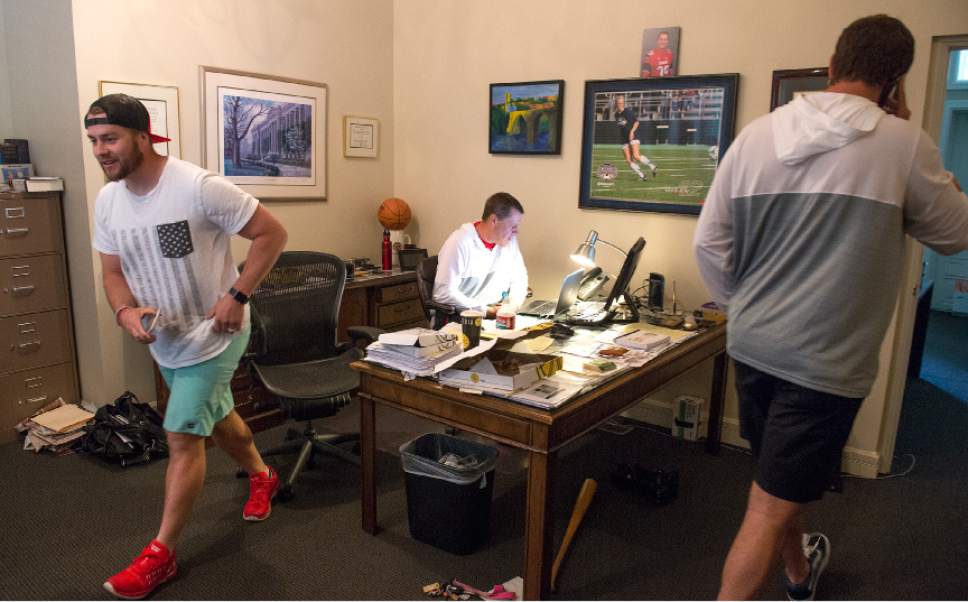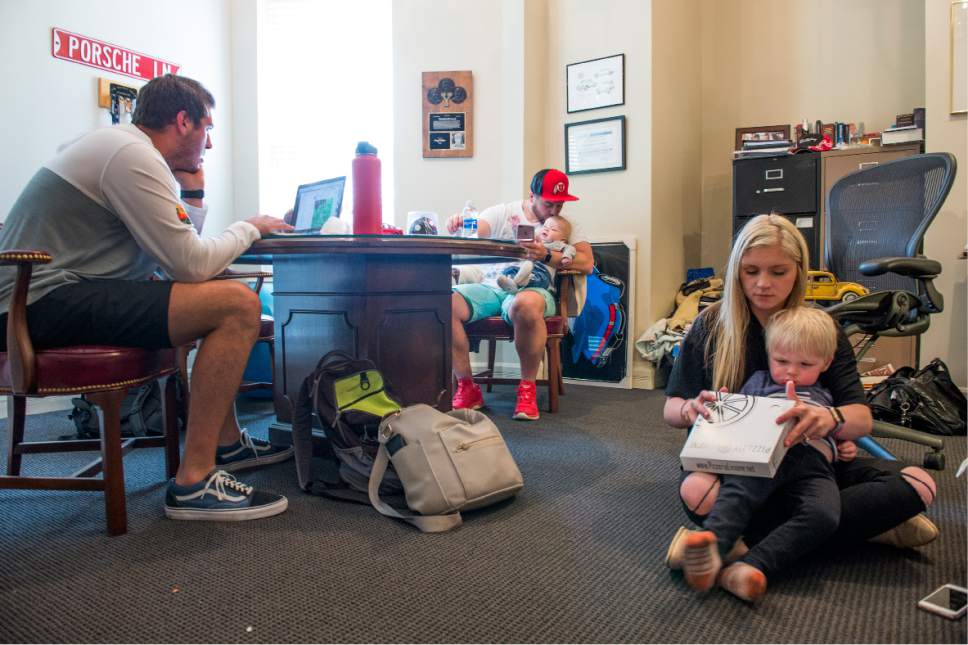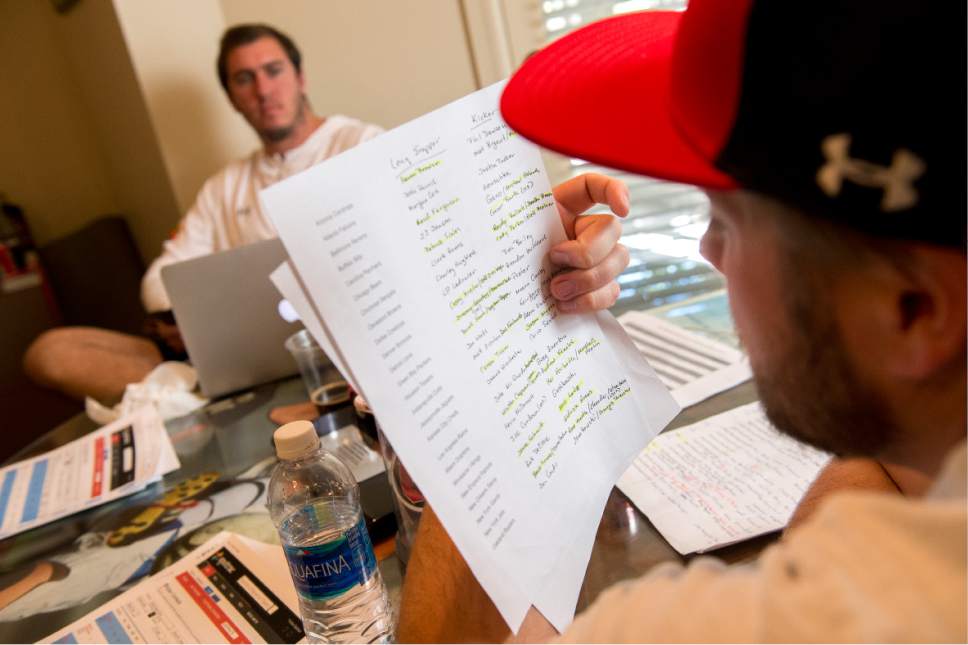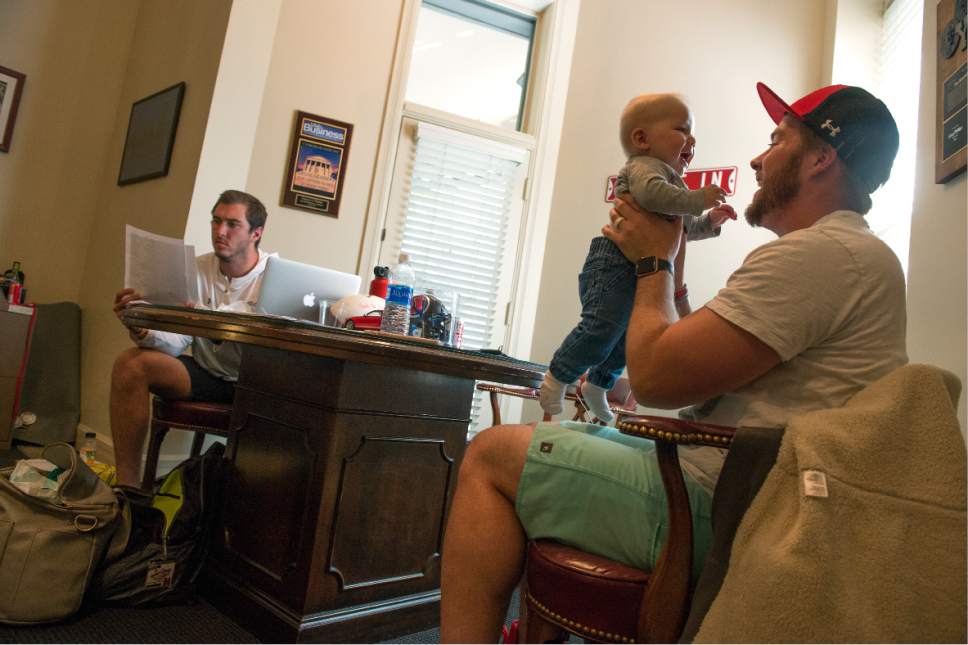This is an archived article that was published on sltrib.com in 2017, and information in the article may be outdated. It is provided only for personal research purposes and may not be reprinted.
On the final day of the NFL draft in late April, one of the loudest cheers in Greg Phillips' office came when a kicker was drafted.
No, it was not his client and son, Andy Phillips. The cheer came for Zane Gonzalez, the NCAA's all-time leading scorer from Arizona State, who went in the seventh round to the Cleveland Browns. He's been a rival of Phillips, in terms of team success and kicking prowess.
Why cheer for him? Because of what's about to come.
Andy Phillips wasn't preparing to be drafted, because if that happens, everything is set: He knows his team, he knows roughly what his contract will be, and he'll know who he has to compete against. What he's preparing for is undrafted free agency — the Wild West when it comes to who wants you and how much you get paid. Most of the deals happen within one hour of the draft, and players and their agents have to be ready to accept or decline, because they never know who else is in the conversation.
The only thing more worrisome than being unsure of a team's proposal is getting no calls.
Andy and Greg Phillips wanted a market for kickers in which Andy can rise to the top of the crop. And with the reigning Lou Groza award winner off the board, Andy Phillips, who will turn 28 in May, looks better.
Both Andy and Chase Dominguez, Greg's other client, expect they'll be undrafted free agents. Many hours of prep have gone into being ready for that one, magic hour when fringe prospects make or break their NFL dreams.
"I'm pretty anxious," Dominguez said. "There's a lot going on."
Get ready
Evan Brennan, an agent with 360 Sports LLC, puts himself on the clock well before the NFL draft begins.
For each of his clients, he puts in at least 10 hours of work to look at the roster for each of the NFL's 32 teams and see who they have at his client's position. Having that info at hand is key to being prepared for undrafted free agency.
When he gets calls to negotiate contracts, he asks each team to explain their roster situation. Simultaneously, he's looking at his own research to check how honest each team is willing to be about what opportunity there will be to make the roster.
"You ask them, 'OK, who do you have there?' " Brennan said. "They say, 'Well this guy is going to be our starter, this is our backup, and these guys are camp bodies.' But then you ask them, 'So if you have all these guys, how do you sign my player?' "
The goal isn't to get into training camp — it's to make a roster.
Being drafted, agents say, is the easiest possible experience: The player knows where he's going, and he knows roughly (based on an NFL Players' Association-negotiated spreadsheet) how much he's going to make.
Free agents, on the other hand, have to be able to make split-second decisions on where they'll go based on who is already on the roster for a given team, who that team has drafted and knowing how much of a financial commitment the team has with current players.
Greg Phillips has stacks of papers in his office of draft day: The kickers and long snappers for every NFL team, the length of their contracts and how much money is guaranteed for the next year. Preferred situations are highlighted in yellow — like New Orleans is for Dominguez. The Saints are somewhat unsettled at long snapper, and they've shown a lot of interest since Utah's Pro Day in late March.
Similarly for Andy, Greg has highlighted the Chicago Bears — a team that has $75,000 committed to its starting kicker, Connor Barth. The Bears have been in touch since before the draft asking about Andy, but in truth, Greg can only guess where Andy falls on their kicker rankings.
He knows there's a chance he'll get a call from the Bears after the draft about Andy, and another Bears official could be on the phone with another kicker. If the other guy agrees to a deal before Andy does, tough luck.
"It's supposed to be kind crazy," said Greg Phillips, who passed agent certification last year and was going through his first draft. "You really have to be ready to make a deal, or you might get passed over."
The path to becoming an NFL agent is relatively straightforward: It involves a two-day seminar in Washington, D.C., then a three-hour test with multiple choice questions. Greg, a Harvard Law grad who works as a lawyer for the car industry by day, was among roughly 20 percent of the people who passed that year, he said.
But the real test, Brennan said, comes during that hour. Agents have to be decisive, but more importantly, prepared.
"That's where you really find out how good of an agent you are," he said. "You've got to know the market."
Possible pitfalls
What happens when an agent — or a client — doesn't know the market?
Inevitably, it doesn't end well.
Mark Flores, an agent with Pillar Sports Management, said he hasn't had a client blink on an offer from a team, but he's heard stories. Agents and scouts share them often at the NFL Combine in Indianapolis. There's three ways a deal can go wrong.
"The possible ways, in my mind, are: a player isn't prepared to make a decision; an agent isn't prepared to make a decision," he said, "or an agent has too many guys that he's representing so you can't field all the phone calls."
Teams can't officially sign undrafted free agents until after the draft, but the calls come earlier: Teams let agents or players know they're interested, that they might have a few picks left but they want to sign a particular player after the draft.
The coddling may be empty: The teams may simply be warming someone up to be a camp body — a player who helps make the roster more competitive in July, but who is cut by September.
Dominguez, for example, was called several times by the Baltimore Ravens leading up to and during the draft. But Phillips and Dominguez know Morgan Cox, the team's long snapper, went to the Pro Bowl last year, and few NFL teams need two long snappers on the 52-man roster.
"It isn't so much about the money as the opportunity," he said. "I want to be able to play."
Playing is lucrative: If you make the 52-man roster, you earn the minimum salary, which in 2017 will be $348,000 for players who don't even play in games, and $465,000 for those who get in at least three. That's a mammoth payday compared with the few thousand dollars free agents will get as signing bonuses. NFL clubs draw from a pool of roughly $98,000 per team to pay every undrafted free agent they sign in a given year, which can be as many as 20.
So, Brennan, the 360 Sports agent, said, it's not always worth it to finagle over the size of the signing bonus if it means a missed opportunity. If he has a client who is fielding offers from 10 or more NFL teams, Brennan knows he has more wiggle room. If he has a client who is getting only one or two offers, he usually advises them to accept on the spot.
The biggest problems typically occur when a mid-round graded prospect drops into free agency after expecting to be drafted. It's difficult to cope with not being taken, and the player may be overestimating his worth. If he lets his disappointment guide him and rejects offers that he perceives as too low, the phone calls may dry up altogether. If he hesitates, the same thing could happen.
"You've got to prepare your players," Brennan said. "If you are unwilling to make a decision in seconds, you're done. I've heard stories where Player X thought he was going to the fifth round, his agent didn't prepare him to be undrafted, and when offer came, [the player] wanted to think about it. Then it was gone, and he was left no recourse."
Getting the call
Greg Phillips is on a call when Dominguez gets one of his own.
The 6-foot-5 Californian rises as if he were playing a snap, alert after hours of waiting in the dim sunlight in the office, pinning his eyes to a monitor. He moves to a neighboring room. He listens a long time, punctuated by the occasional "Mmhmm." He paces, looking at the floor as he strides.
Andy appears in the doorway between the rooms, trying to ask who he's on the phone with. Dominguez covers the monitor and mouths, "Saints." He and his agent are on the phone with the same team — that means something good is happening.
Andy signals back to Dominguez, holding up three fingers: a $3,000 signing bonus.
Dominguez gives a thumbs up: Do the deal.
As his agent gets the terms of the deal in the other room, Dominguez is on the phone with a New Orleans Saints special teams coach hearing about the competition he'll be expected to bring when he reports to rookie mini-camp in two weeks.
"I'm ready to compete for that job and run with it," Dominguez tells him.
It's not long after that Andy Phillips gets his own call from the Bears. Greg gets one, too, from the team's director of West Coast scouting. As Greg chats up the front office official and agrees to terms on a contract with a $2,500 signing bonus, Phillips talks to his future special teams coordinator a little about football, but also about things like skiing.
As the fervor of calls ends, there's a warm feeling in the room. Phillips and Dominguez are in a good mood, their free agency having gone easier than they expected. They discuss with Greg and Darby Broeker — Dominguez's girlfriend — where they can go buy hats for their respective teams. Andy calls his wife, Megan Phillips, who is home with their two children, to tell her the good news.
"Thanks for doing your job," Andy tells his father.
Twitter: @kylegoon —
Utah's undrafted free agents
Player NFL team
Hunter Dimick Jaguars
Chase Dominguez Saints
Tim Patrick Ravens
Andy Phillps Bears
Reggie Porter Colts
Pasoni Tasini Cardinals
Jason Thompson Patriots


